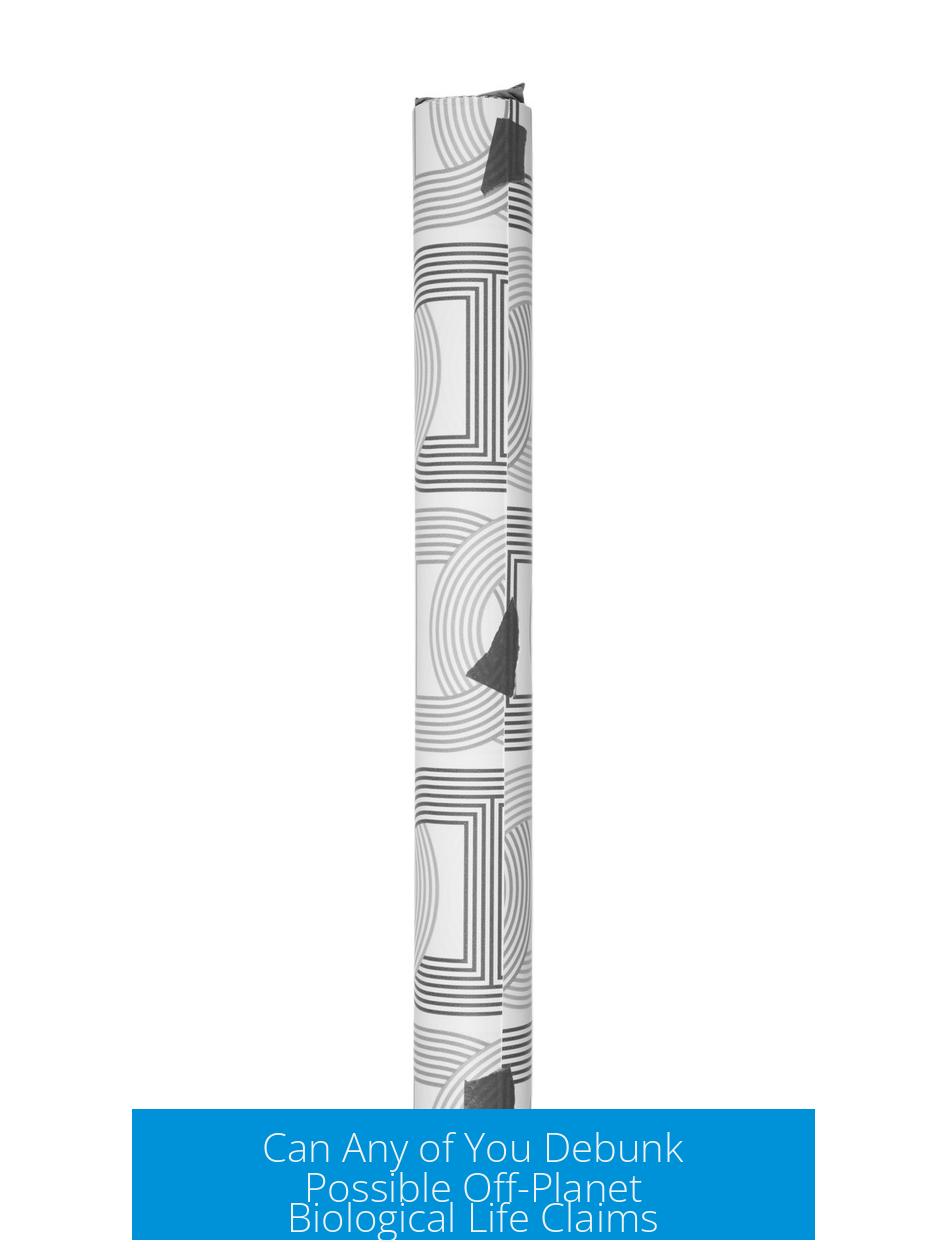Can Any of You Debunk This? Possible Off-Planet Biological Life Disclosure

The claim of off-planet biological life disclosure, as circulated in certain circles, faces serious skepticism grounded in scientific rigor and logical reasoning. Numerous factors undermine its credibility, including flawed narrative structure, scientific inaccuracies, and lack of verifiable data.
General Skepticism Surrounding the Claim
The disclosure is widely viewed as a creative fabrication rather than a factual report. Many critics consider it “well researched fan fiction” or an elaborate prank. The narrative shows signs of embellishment and motives such as attention-seeking rather than genuine revelation.
- Claims are often seen as imaginative expansions on known material.
- Self-admitted false premises cast doubt on the entire story.
- Without independent verification, the account remains anecdotal.
Narrative Flaws and Implausibility
The story’s framing raises suspicion. For example, the alleged researcher supposedly presented findings at a conference and was then employed to study extraterrestrial DNA. This situation defies standard protocols for high-level secretive projects.
- Hiring a random individual with unimpressive credentials is unlikely.
- Sensitive projects typically implement strict compartmentalization to avoid leaks.
- Sharing comprehensive alien biological data with a self-described “overqualified tech” contradicts standard security.
Further, key scientific details remain unshared. Unique post-translational modifications (PTMs) are mentioned but without any concrete data. Biological claims like 16 circular chromosomes conflict with known biology, since eukaryotic chromosomes are linear, raising questions about genome replication and chromosomal organization.
Scientific Inaccuracies and Molecular Biology Red Flags
Experts identify significant inaccuracies in the molecular biology described. For example, explanations of noncoding DNA roles lack depth expected from a specialist in the field.
- The claim that alien cells require fetal bovine serum (FBS) due to “animal genes” inserted into their genome suggests a misunderstanding of molecular compatibility.
- Misconceptions about molecular evolution undermine the biological plausibility of the organisms described.
- The alleged alien species are described with chordate-like features (digestive system, spine, tetrapod structure) despite billions of years of separate evolutionary paths—this convergence is highly improbable.
- The vague statement that some genes “evolved in another biosphere” is unsupported and defies genetic evidence-based reasoning.
These scientific gaps point to a lack of genuine expertise or a deliberate narrative choice over scientific accuracy.
Feasibility and Technical Concerns
The timeline and scale of the genome sequencing presented also clash with historical realities. Significant genome projects, such as those for fruit flies and worms, were large collaborative efforts completed only around the year 2000. The claim that a small, secretive group pieced together an alien genome earlier strains credibility.
- Absence of critical genome statistics reduces transparency.
- Genome-wide discoveries are discussed without supporting data or peer-reviewed evidence.
- No genome sequences or raw data were leaked or shared publicly, undermining scientific validation.
- The use of technical molecular biology jargon does not substitute for verifiable scientific contributions.
Challenges in Debunking Due to Volume and Complexity
The breadth of claims resembles a Gish Gallop—a tactic of overwhelming with numerous assertions. This complicates thorough refutation, as debunking every element is time-consuming and requires extensive expertise.
- Peer review is impossible due to inaccessible original data.
- Without testable evidence, confirmations or outright rejections remain speculative.
Balanced Perspectives and Openness to Possibilities
Despite strong doubts, some commentators recommend maintaining a scientific mindset. Given that governments discuss unclassified aspects of extraterrestrial phenomena, future disclosures may be possible.
- Some hypothesize the existence of unknown biological entities, keeping an open but critical approach.
- The suggestion to apply rigorous peer-review style criticism remains valid.
- Scientific inquiry demands testability, reproducibility, and robust evidence before acceptance.
Local and Contextual Scrutiny
Insiders familiar with locations like Fort Detrick report inaccuracies in the described facility environments, further reducing authenticity. Mockery and skepticism from local professionals add context-sensitive doubt.
Key Takeaways
- The off-planet biological life disclosure is generally considered fictional and poorly substantiated.
- It exhibits narrative, scientific, and procedural inconsistencies beyond credible boundaries.
- Biological claims contain fundamental misconceptions about molecular evolution and genome structure.
- Technical feasibility regarding genome sequencing and data sharing does not align with known scientific standards.
- Volume and complexity of claims hinder comprehensive debunking but lack scientific evidence for acceptance.
- Remaining open to future legitimate disclosures is possible, but requires methodological rigor and peer-reviewed data.
- Local expert observations reveal contradictions to the described settings, further weakening the claim.
Q1: Why do experts doubt the credibility of the claimed off-planet biological life disclosure?
Experts point out that the story reads like fan fiction or an elaborate prank. Key scientific details are missing or inconsistent. The narrative also contains claims that contradict known molecular biology and evolutionary principles.
Q2: What are the main scientific issues with the biological details in the disclosure?
The genome described has 16 circular chromosomes, which is not typical for complex organisms. Claims about alien cells responding to fetal bovine serum and gene evolution across biospheres raise red flags due to poor understanding of biology and vague explanations.
Q3: How plausible is it that such sensitive extraterrestrial research would be shared with an unknown individual?
It is unlikely. Secret projects restrict access, especially involving aliens. Hiring an unproven researcher met briefly at a conference goes against common security and project management practices.
Q4: Why is it hard to fully debunk or confirm the claims?
The volume of claims is large, similar to the “Gish Gallop” tactic, making thorough debunking slow. Also, lack of access to data and physical evidence prevents peer review or testing, leaving many points unverified.
Q5: Are there any positive aspects or open-minded views on the disclosure?
Some believe that parts of the story are not impossible. Discussions about this topic outside usual circles may lead to future answers. Officials and professionals showing interest might indicate progress toward real disclosure.





Leave a Comment